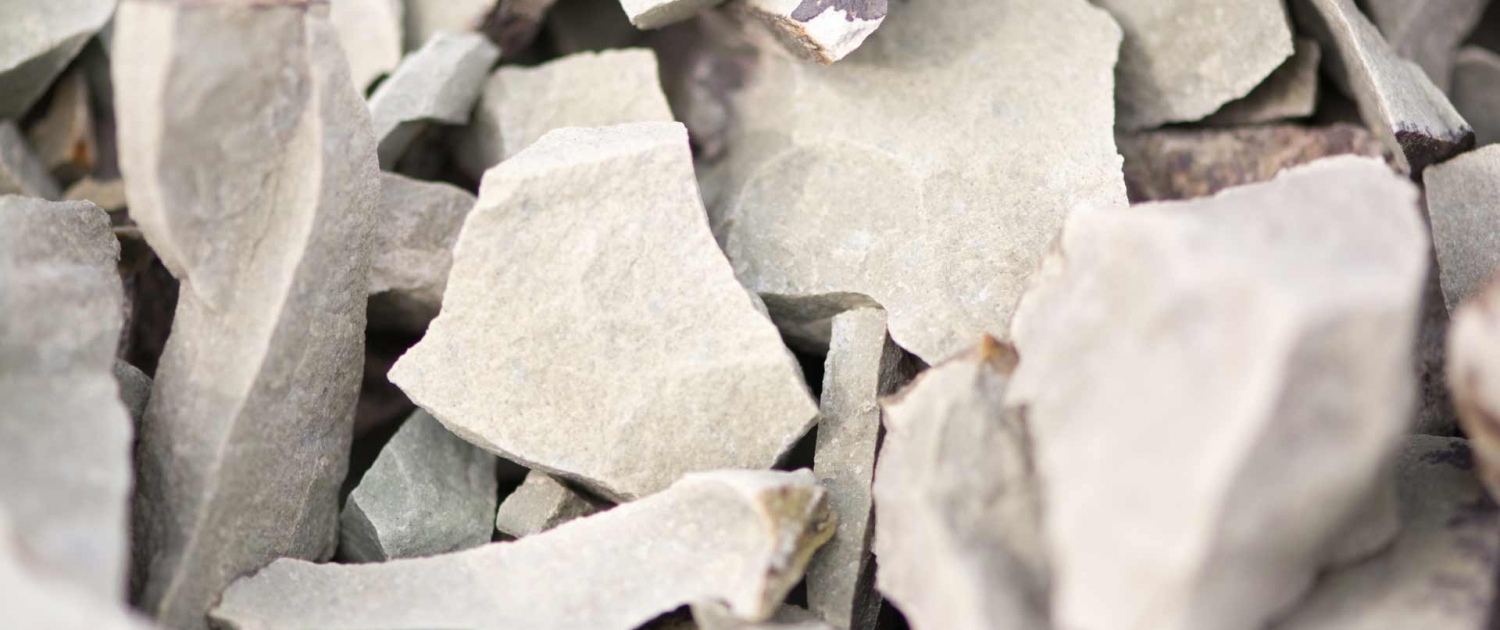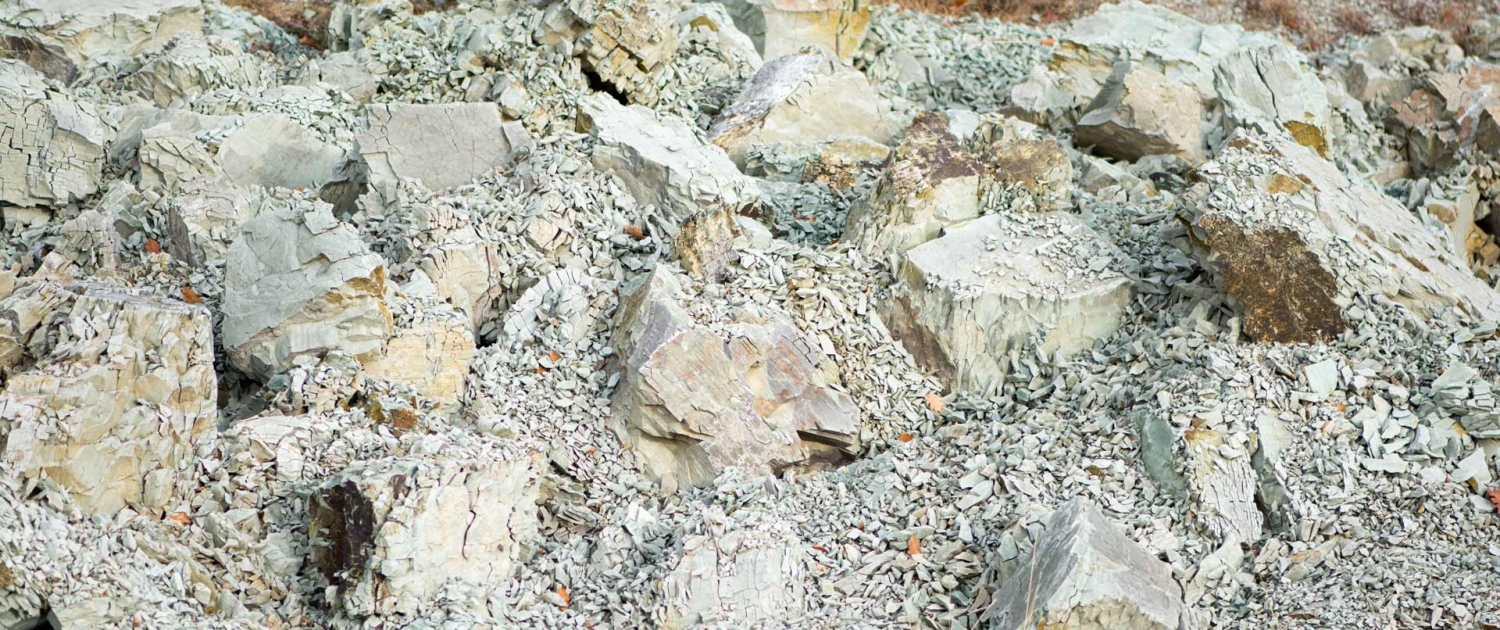Properties
Zeolites have a tremendous value due to their numerous properties from which the most important is the absorption capacity of micro particles. This means the power to cleanse the environment in which they are used.
Of natural zeolites, clinoptilolite type zeolite, extracted and processed also by Zeolites Production, is distinguished by its purity and enhanced properties compared to other types of zeolites.
Zeolite ore keeps its qualities in different forms of processing, from raw rock to very fine particles, thus finding their extremely wide use in many industries, from animal feed or even in specially designed products for human use to petrochemical or nuclear industry.
The main properties of zeolites are:
- The capacity of water absorbing and removal without destroying the molecular structure but only with a change of color. This property is used for example in balancing the level of humidity in a room and eliminate adverse effects of excess moisture or sharp decline of air humidity.
- High capacity of gas filtration and absorption of zeolites offers many applications in environmental protection.
- Filtering different solid, liquid or gaseous toxic substances hence the name by which is known the zeolite mineral: molecular sieve.
Zeolite can absorb:
- heavy metals
- water micro particles
- toxic ammonia
- sulfide hydrogen
- other substances toxic to the body
Increased thermostability which gives a great potential to use in various building materials.
Ion exchange capacity without changing the molecular structure. More exactly, the exchange between zeolite cations and cations of substances with which it comes in contact, property applied especially for water softening. The zeolite has the capacity to stabilize the water pH between 6.2 and 6.8.
Resistance to aggressive external environment which recommends products based on natural zeolites to be used in corrosive environments.
Catalyst in various chemical reactions, property used in many organic reactions such as isomerization, oxidation or synthesis of fuels.
Properties of zeolites are due to their molecular structure that can be described as a tetrahedron with a silicon atom in the center and oxygen atoms at the corners which are otherwise the points of connection between the structures giving rise to a broad array of shapes similar to a honeycomb.
This structure forms a network of channels and cavities that allow the penetration of molecules and filtering them according to size, shape and polarity leading to absorption and filtration of various substances that come into contact with zeolites.
Natural zeolites were formed by volcanic ash deposits in lakes with salt water. Is the case of volcanic tuff exploited by Zeolites Production where clinoptilolite zeolite, according to studies, has an average purity of over 85%.
Study of zeolites is far from over. Many institutions, organizations and companies in the world conducts researches, tests and studies to discover new properties and uses of this miraculous natural mineral formed from volcanic rock over millions and millions of years ago.
Uses and Benefits
Agriculture
Animal Farms
Reduce odor of natural residues (feed additives)
Detoxification (feed additives)
Prevention and control of gastrointestinal problems
Fluidizing agent (additive in feed)
Substantial increase of resistance to breaking for eggs
Control and prevention of birds cannibalism
Remove micro-toxines from milk (including aflatoxin)
Reduce or eliminate unpleasant odors (absorbs ammonia, the main source of odor)
Increased resistance of feed bales by controlling moisture
Bedding layer for transport of pesticides and herbicides (due to porosity)
Eliminating toxic waste from discharged waters
Leakage agent (moisture absorption prevent jams of dried food on supply lines)
Controlling moisture in food stores (prevents sticking to wet surfaces, installing molds, larval growth)
Water recycling used for egg cleaning used in poultry farms by absorbing bacteria (including E coli)
Chinchilla farms - zeolite powder coat cleaning
Crops
Natural fertilizer
Nutritional supplement for plants
Eliminating toxic waste from discharged waters
Leakage agent (moisture absorbent and prevents jams of solids on production lines )
Contributes with essential chemical elements Si, Fe, Ca, Mg, Na, K , P, Cu, Zn, in the plants metabolism;
The seeds have a higher germination percentage;
Develop strong root system, especially during the shoots;
Control of humidity in storage of seeds or containers used to transport them (prevents sticking to wet surfaces, installation of molds, larval growth )
Manure enrichment
Neutralizes excessive acidity of soils
Easily retain water in wet seasons and releasing it slowly during drought
by their ion exchange properties, stores active elements (macro and micronutrients : K + , Cu 2 + , Zn 2 + , Mn 2 + , etc. . ) then slowly releases them into the soil
by their adsorption property, it stores various active compounds (insecticides , pesticides, pheromones , etc. . ) that it releases in time
Fisheries
Absorb toxic ammonia and sulfide hydrogen;
Improves the health of the aquatic environment;
Absorb heavy metals;
Remove particulates from water;
Slows algae growth and multiplication;
Not toxic to fish or nitrified bacteria;
Balance PH - the value between 6.2 to 6.8.
Construction
- Roads and highways – skid for icy road or slippery roads where were spilled liquids (oil stains, gasoline)
- Cement - manufacturing lightweight cement and insulating foams
- Prefabricated Production
- Material for grinding metal surfaces
- Plaster Modeling
- Decorative Stone
For Home Use
Air Cleaning
- Fragrance – absorbing from air bacteria that are the source of unpleasant smell
- Biofilters - Retention of air pollutants by adding zeolite in different filters (air conditioning)
- Fltering and purifying water - special filters
- Preserving food for a longer time
- Remove odors from the refrigerator
- Remove odor from shoes
- Eliminating odor from bathroom, closets, basement, attic
- Humidity control in closed, poorly ventilated rooms
Gardening
- Improving soil quality
- Decorative Stone
- Skid material for interior walkways or roadways in the garage
- Substrate soil additive for lawns - allows you to adjust the amount of water, filtering harmful substances, use the gradual release of nutrients
- Lawn substrate
Pets
Food
- Supplements
- Additives in feed production
Cleaning and care
- Sand for cat litter
- Absorbent for pets bedding;
Aquariums
- Decorative Stone
- Mechanical filtration of impurities
- Filtration, chemical impurities, including the removal of heavy metals from water
- Biological filtration - Zeolite stone becomes the support of biological colonies that grow in aquariums
- Reduce algae growth
Elimination of odor
- Thin layer for cages dressing cage to reduce odor
Medicine
- Production of antiseptic dressings
- Production of toothpaste
- Production of cosmetic creams and powders
- Detox products
- Production of certain drugs
Environment protection
- Absorption of chemicals in rivers and lakes
- Reducing the negative effects of marine discharges of oil substances
- Reduce Cs137 and Sr 90 isotopes from radioactive mediums - Fukusima disaster involved the use of tens of thousands of tons of zeolite to reduce radioactive contamination of the area including the area of sea water used for cooling reactors. Same happened in Chernobyl.
- Absorbs heavy metals from accidental discharges
- Acid absorption from the soil in which they dumped waste including used batteries
For industrial uses
Filtration and air cleaning
- Biofilters - Retention of air pollutants by adding zeolite in different filters (air conditioning)
- Neutralizing toxic substances emitted in the production process
- Removal of hydrogen sulfide and ammonia gas smell
- Deep drying of gas
- Obtaining hydrogen from gas
Filtering and cleaning water
- Filters for waste and radioactive water purification;
- Sand for Filter
Soil Cleaning
- Absorption of substances such as oil, gasoline, alcohol and other organic and inorganic substances
Food Industry
- Extension of storage time for food
Chemical and Petrochemical Industries
- Catalysts in chemical processes
- Production of paints
- Filler in the manufacture of rubber and plastic products
- Manufacture of cleaning products - one of the most extensive use of zeolites
Halls , Warehouses, Production units
- Humidity control in the air
- Remove stains from oil, grease or other organic or inorganic substances. They are absorbed by the zeolite powder then can be peeled and removed easily.
Transport
- Cleaning oil residuum from oil tanks
- Reducing radiation from radioactive containers
- OBOGS ( On -Board Oxygen Generatig Systems) uses zeolites to extract nitrogen from compressed air to provide oxygen necessary to aircraft flying crews at high altitude (Source : Wikipedia)
Other uses
- Obtaining high quality paper;
- Heat storage in solar energy systems.
- Colloidal Transport
- Filtering edible oils






